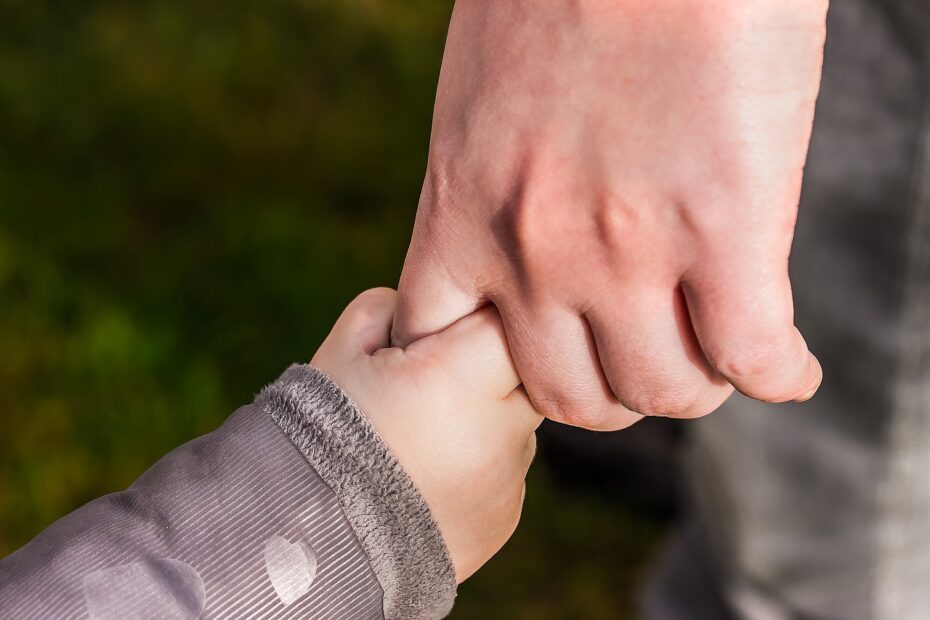By Martha Rackets, Ph.D., LMFT, Encore Executive Director
A key component in treating addiction, mental health issues, and unresolved trauma is helping people to understand the need to care for themselves and respond to life’s challenges in healthy ways. Substance use disorder specifically is an unhealthy, self-destructive means of soothing or numbing ourselves as a means to avoid or tolerate feelings, thoughts, or experiences. Treatment can help us discover healthier ways to deal with our emotions, stress, and setbacks.
When it comes to parenting, these healthy and unhealthy behaviors are even more relevant: taking care of ourselves means that we can better care for our children, but we are also modeling how they can take care of themselves. In doing so, we can help reduce their potential vulnerability to unhealthy coping methods. Research1, 2 shows that parents who work on their own mental health and happiness provide healthier parenting for their children, and in turn, a strong foundation as they mature into adulthood, this can decrease addiction risk in children.
Here are 6 ways working on yourself can decrease addiction risk in your children:
1 – Model a full range of emotions and, critically, how to regulate those emotions.
By modeling negative behaviors and how to handle them, you teach your children how to do the same. As John Gottman, Ph.D., author of Raising an Emotionally Intelligent Child: The Heart of Parenting, notes, “…By hiding their emotions, these parents may be raising youngsters who are even less capable of handling negative emotions than they would have been if their parents had learned to let their feelings show in a non-abusive way…The children have one less role model to teach them how to handle difficult emotions effectively.”
For example, if you are annoyed because the cable repair guy didn’t show up, expressing that frustration, then taking a deep breath (or whatever helps you release the frustration) and saying, “Okay, now I can make that phone call and stay calm” gives your child an example of being able to experience the emotion, verbalize it, and then identify a healthy way to deal with the annoyance and setbacks.
2 – Show your kids what self-efficacy means rather than telling them.

We all, adults and kids alike, face tasks that we believe we cannot do. As the parent, give yourself the freedom to say, “I don’t know how to do this!” following it with the critical word, “Yet.” “I don’t know how to do this yet, so I am going to figure out how to do it and who can help me and make a plan.” Competence is a skill, not a gift. In other words, we can learn it and, in doing so, can show our kids how they can learn and cultivate it for themselves. Developing self-efficacy directly impacts a child’s mindset towards transitions, changes, and disappointments. Without self-efficacy, life events are experienced as stressful and overwhelming. With self-efficacy we experience life challenges as hurdles rather than road blocks.
3 – Becoming competent at any task involves failing. And trying again.
As with all of these suggestions, modeling failure and persistence is most effective in teaching your children. Becoming a good baker or cook, for example, will provide many examples of failing, trying again, and getting better at it. The bread turns out flat, cake crumbs get into the frosting, and on and on. If you acknowledge your failure and try again, you show them that it’s okay to fail and important not to quit.
4 – Acknowledge your imperfection, including your struggles.

If you are in recovery, let your children know. How much you say to your child depends on their age and maturity level, but it can begin early. It’s also okay to let your kids know that you realize you aren’t a perfect parent, but that parenting, like many things in life, is a process. This can certainly help decrease addiction risk in your children.
5 – Stress is a natural part of life, so adults and children alike have to figure out how to deal with it.
If you are a parent in recovery, you likely have found effective healthy ways to deal with that stress. Using mindfulness, practicing yoga, getting a good night’s sleep, exercising, and eating healthy food are a few examples. Modeling those healthy life choices and helping children figure out how to deal with their own stress in ways that work for them is a big step in reducing their risk for mental health challenges or developing unhealthy coping behaviors, such as substance use.
6 – Validate your child’s emotions, whatever they are (and validate your own!).

It’s unrealistic to expect that we as human beings should always be positive, optimistic, or upbeat. We need to be able to feel and express loneliness, sadness, anger, and guilt. Dr. Kristin Neff encourages practicing self-compassion, as a means of tuning into our own experiences and developing compassion for our own emotional struggles. When we can tune into and validate our own emotions, we provide the ground work to model this important skill to our children. In their book, No-Drama Discipline: The Whole-Brain Way to Calm the Chaos and Nurture Your Child’s Developing Mind, Dan Siegel, M.D., and Tina Payne Bryson, Ph.D., emphasize the importance of acknowledging children’s emotions and the feelings behind them. “Yes, we have to say no to certain behaviors and offer clear boundaries and structure as parents. But even as we do so, we always want to say yes to children’s emotions, and to their experiences with the world.” Once kids have that connection, the authors explain, they are receptive to learning a different way to handle their emotions and parents can redirect their behavior. This can be an extremely effective way to decrease addiction risk in your children.
- Grusec, J. E., Rudy, D., & Martini, T. (1997). Parenting cognitions and child outcomes: An overview and implications for children’s internalization of values. In J. E. Grusec & L. Kuczynski (Eds.), Parenting and children’s internalization of values: A handbook of contemporary theory (p. 259–282). John Wiley & Sons Inc.
- Albanese, AM, Russo, GR, Geller, PA. The role of parental self-efficacy in parent and child well-being: A systematic review of associated outcomes. Child Care Health Dev. 2019; 45: 333– https://doi.org/10.1111/cch.12661
